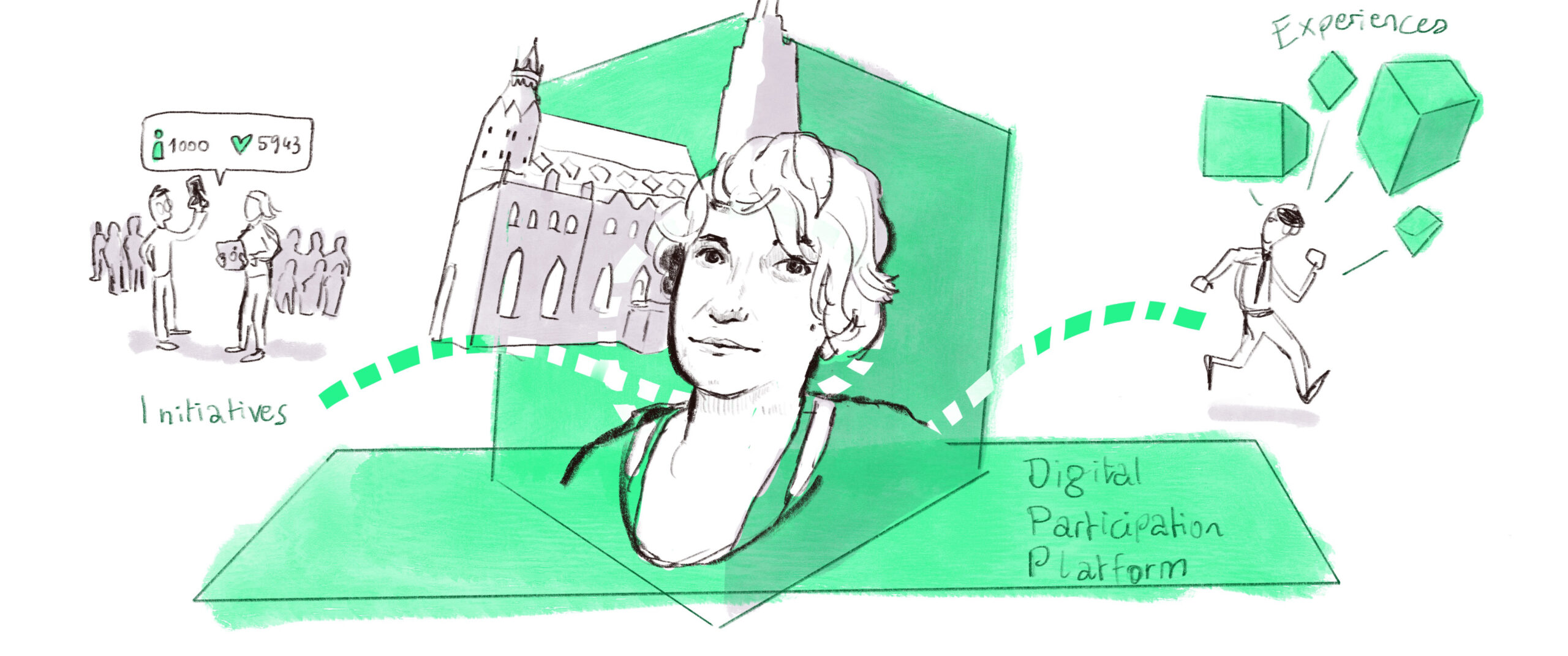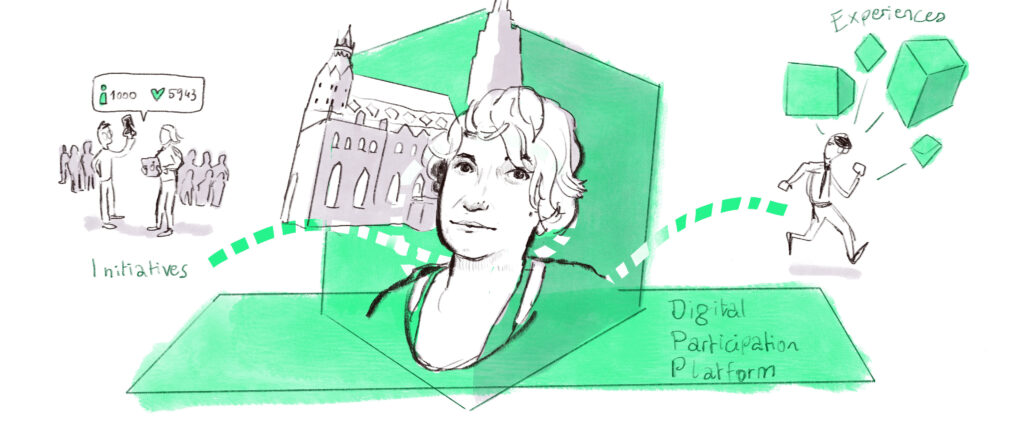
Analogue Reality and Digital Opportunities
Analoge Realität und digitale Möglichkeiten
Podcast in German: Wencke Hertzsch, April 27 2020
The City of Vienna has long been taking steps towards digital participation regarding urban development processes. But the most significant leap yet has been brought on by the current pandemic. As municipalities are gradually adjusting to new routines, the experiences gathered in the digital realm may enhance future participation processes.
Die Stadt Wien baut seit Längerem schrittweise die Möglichkeiten digitaler Partizipation auch im Bereich der Stadtentwicklung aus. Aber den bisher größten Schub erhielt das Thema durch die aktuelle Pandemie. Die Stadtverwaltung entwickelt neue Routinen und sammelt im digitalen Raum Erfahrungen, die zukünftige Beteiligungsprozesse verbessern könnten.

Routine returns as local government officials at the City of Vienna enter their seventh week of remote work. Many public events had been planned and are now either postponed, or replaced by a digital alternative. For a development strategy for “Südraum Favoriten”, an area in the south of Vienna’s 10th district, physical events such as a dialogue bicycle tour at public spaces had to be cancelled, replaced by digital formats such as virtual consultation hours or digital questionnaires on social media – but not everything can be mirrored in digital space. To reach a larger section of the populace and all affected households, a project newspaper was distributed in an attempt to mix digital and analogue formats.
The presence of urban development topics in public discourse has changed over the course of the lockdown. For the first weeks, local government and citizens alike were busy setting up new modes of operation and infrastructure, apart from the activities to protect critical infrastructure. But many were quick to return to their routines and put urban issues back on the agenda. Initiatives fighting for perceived injustices in the allocation of public space are using the crisis to call attention to their cause, offering their arguments and observations on the situation. These initiatives are no strangers to generating public approval via social media. A citizens´ initiative in Südraum Favoriten, for instance, has been using online surveys to mobilize citizens and gather evidence for an additional position, parallel to the official participation process.
However, it is evident that informal, trusting conversation does not occur naturally during a lockdown. Deliberate invitations are required. Hertzsch also suggests that it is more difficult to accept criticism in a digital space – both for the municipality and for citizens. Any critique is interpreted outside of the screen without the possibility of clarification, reflected as a comment that in turn is interpreted elsewhere.
That is why, from my perspective, every critical discourse that takes place digitally requires a form of moderation. […] These spaces also need moderation.
Wencke Hertzsch 04/2020
Just as Raumpioniere used their platform to network and support initiatives, the City of Vienna had been running their own participation platform since 2015 and used it to promote educational and cultural initiatives during the pandemic. For local government, Hertzsch notes, the crisis has brought on a big boost in digital participation in urban development. In addition, the City of Vienna is currently conducting a market survey for digital participation and a participation platform in general. Thanks to the situation brought on by the pandemic, the city now understands its requirements for such a platform even better and is able to ask more precise questions.
It remains without question that analogue opportunities for participation will always be necessary. Through the digital realm we return to the physical, because we do miss it. Hertzsch hopes that this excursion leaves us with experiences of new ways to reach citizens and collaborate on projects.
The lesson learned is not that we will find salvation in the digital, but that we were able to take steps and gather experiences in the world of digital participation that otherwise might not have been possible so soon. And now we can reflect back on it and find a better mix of participation projects.
Wencke Hertzsch 04/2020
Wencke Hertzsch is an urban and regional planner with more than 18 years of experience in the field of urban regeneration, urban development, participation and communication. She has worked at TU Vienna and led the district management in Seestadt Aspern. Since 2016 she has been working as an advisor on strategic participation to the City of Vienna’s Executive Group for Construction and Technology.